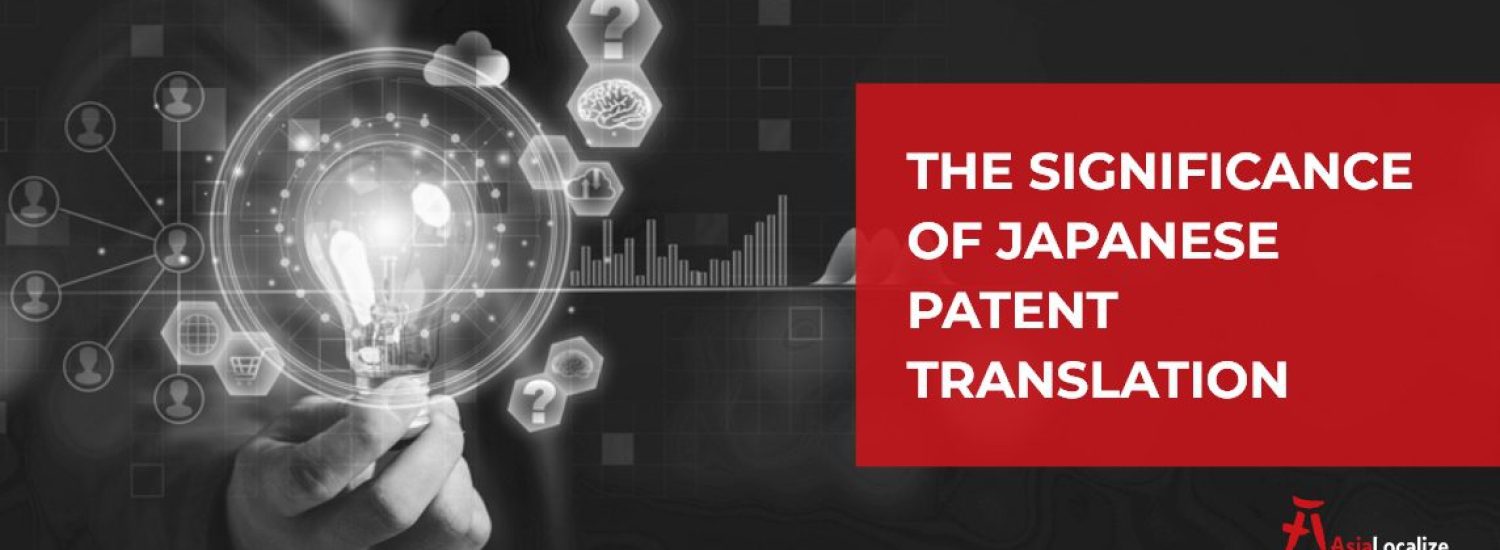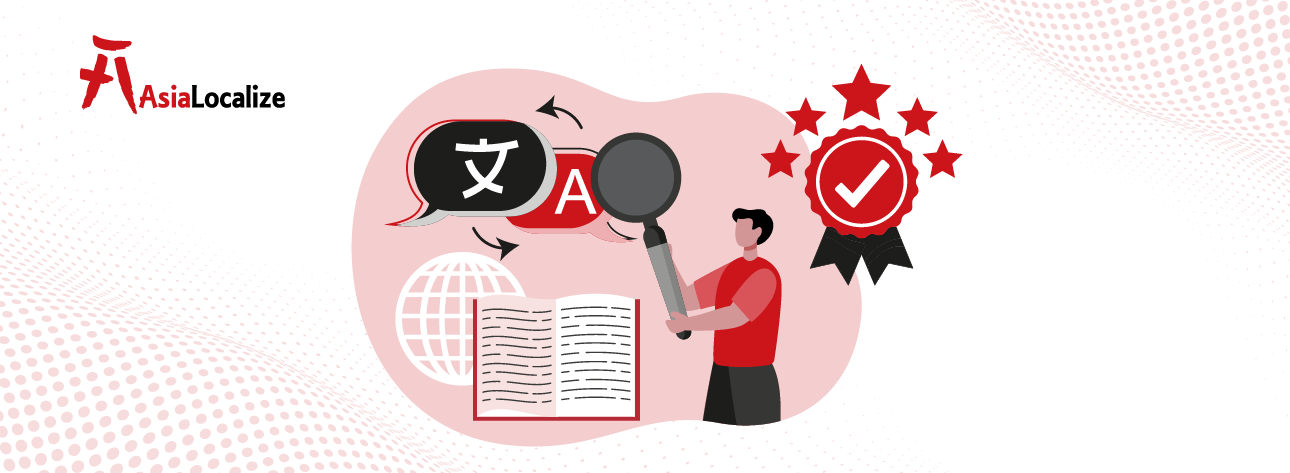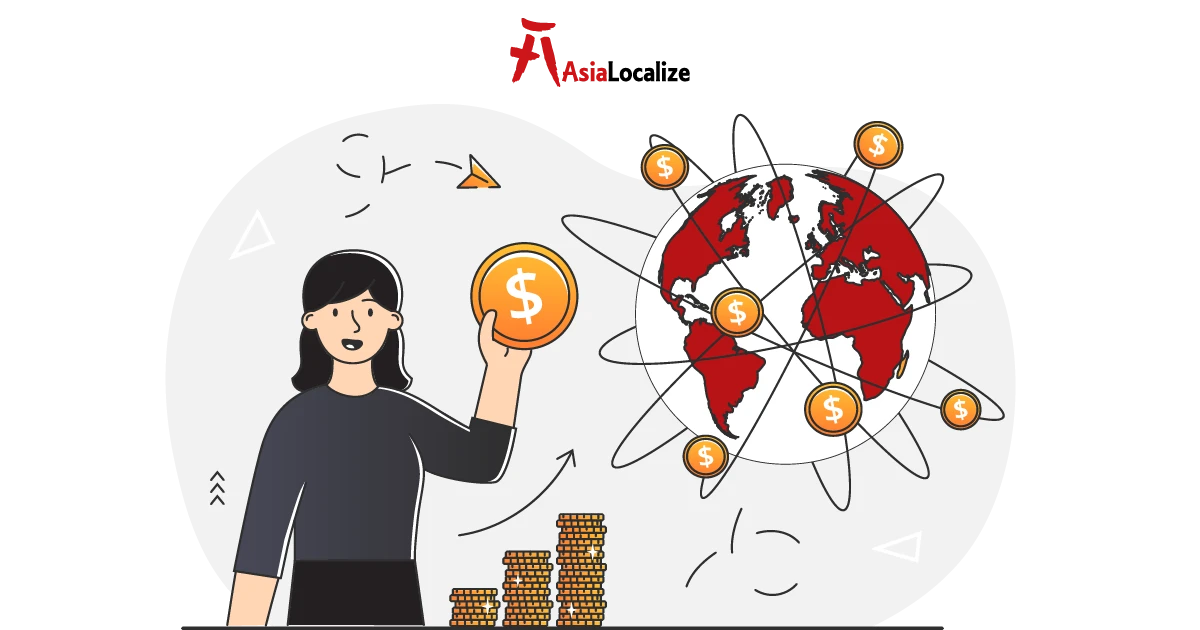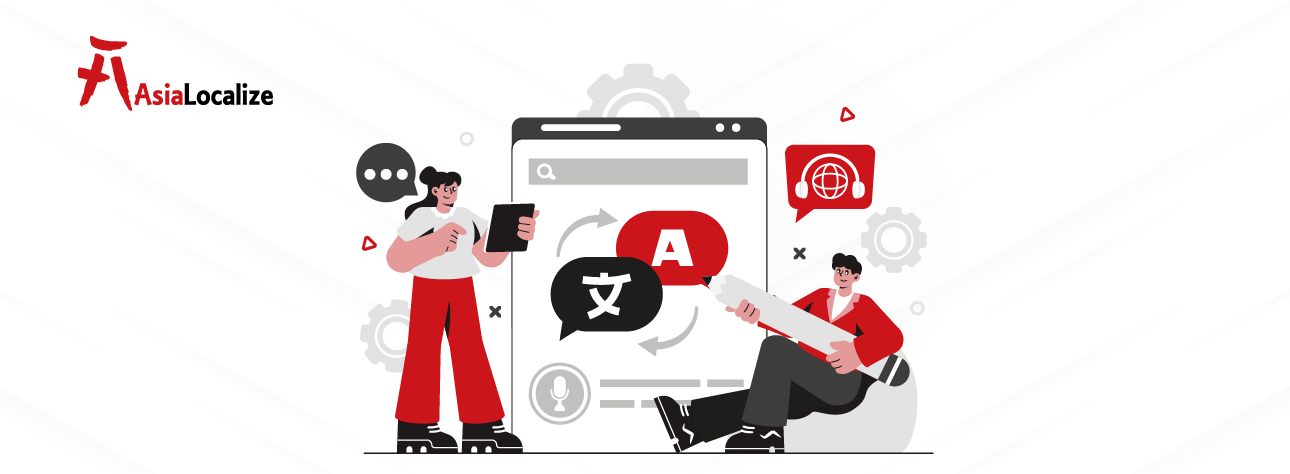From local innovation to global impact, the pursuit of groundbreaking ideas knows no borders. But this global breakthrough requires the crucial strategic protection of intellectual property (IP), especially in the dynamic market of Japan.
The Japanese market holds tremendous promise for those seeking to introduce their products and innovations. But with such promise comes challenges. Japan’s IP landscape and patent protection system can be stringent and necessitate Japanese patent translation services.
This article will discuss the importance of Japanese patent translations and how they significantly impact your success in the Japanese market.
Ready?
Understanding Patent Translation
Patent translation is the process of preparing your patent documents in another language for an international audience to protect your ideas, inventions, products, or technologies in a specific target region.
It’s a complex and specialized type of translation that deals with the unique nature of patent documents.
In essence, patents are legal documents that provide a clear and comprehensive explanation of your industry-specific innovation. And it’s that blend of legal and technical language that makes patent translation a meticulous and nuanced job.
It accordingly requires specialized expertise to accurately convey both the intricate technical details of an invention and the precise legal terminology necessary for securing and defending intellectual property rights.
● 3 Key Aspects of Professional Patent Translation
Patent translation services involve 3 aspects that collectively safeguard the integrity of your innovation, preserve its legal validity, and facilitate effective communication across linguistic and legal boundaries.
1- Completeness
This means ensuring that the translation involves accurately translating not only the main content but also all the elements of the original patent document. This includes the technical description of the invention, legal claims, visual elements, and any supporting materials.
Omissions or inaccuracies could lead to misinterpretations, potential loss of rights, or difficulties in comprehending the technical aspects of the invention.
2- Compliance
This refers to adhering to the legal and technical requirements of the target jurisdiction. Different countries have specific patent laws, regulations, and even local formatting guidelines.
In the context of Japanese patent translation services, your patent translation should meet the local standards and specific criteria of the Japanese patent system.
3- Accuracy
Patent translation should be completely faithful to the meaning and intent of the original source material; conveying the innovation’s exact details. This demands a synergy of linguistic accuracy as well as technical and legal precision.

● Types of Patent Translation
Patent translation can be broadly categorized into two types based on the purpose and stage of the patent process: “For Filing” and “For Information” translations.
1- For Filing
“For Filing” patent translation involves preparing your patent documents in a foreign language as an official record. It’s crucial for your patent application process, where your patent translation is submitted to the patent office in a specific jurisdiction.
2- For Information
“For Information” patent translation involves preparing already filed patents as legal evidence or disseminating the patent’s content to a wider audience, such as researchers, businesses, or legal professionals.

Overview of the Japanese Patent System
Whether you are looking for commercial opportunities, access to funding, or protection, patent translation can maximize the value and potential of your innovations.
And if you are eying the Japanese market, you are opening up to a remarkable impact. Japan is a global leader in technology, manufacturing, and research, making it a thriving hub for international inventors and businesses.
In fact, Japan is one of the top powerhouses in the number of international patent filings, making 18% of the world’s international patent filings in 2021. Automotive, engineering, electronics, and chemicals top the Japanese patent industries’ chart.

However, the Japanese patent system and intellectual property (IP) landscape are known for their strictness and intricacies. It has a strong, comprehensive legal framework dedicated to safeguarding intellectual property (IP) rights. Navigating such complexities requires a comprehensive understanding of local requirements and regulations.
According to Article 36bis of the Patent Act of Japan, you can submit an initial patent application in foreign languages (currently only in English).
However, that still won’t be enough.
The Article states applicants should submit a Japanese patent translation within two months from the filing date. This was later amended and the period for submitting a Japanese patent translation is 14 months either from the filling date or the priority date.
An English-language patent application may serve as a starting point, but a Japanese patent application is essential to streamline further proceedings and your entire patent application process in the Japanese market. This makes Japanese patent translation services imperative.
And if your patent is not in English in the first place, there’s no need to go through the hassle of translating it into English first and then subsequently into Japanese.
How Can Japanese Patent Translation Services Maximize the Impact of Your Patent in Japan?
Between the opportunities of the Japanese market to the challenges of its patent system, Japanese patent translation services come to bridge this gap.
And without professional Japanese patent translation, one minor translation mistake or inaccurate terminology can jeopardize your efforts.
Investing in accurate and compliant Japanese patent translation is a strategic move that directly influences your success within the dynamic and innovation-driven Japanese landscape.
Let’s see how Japanese patent translation services can empower your efforts.
● High-quality Japanese Translations for Easy Access and Streamlined Application Process
Accurate Japanese patent translation provides you with easy access to the Japanese market and expedites the application process.
Collaborating with a professional patent translation agency that relies on expert Japanese translators with legal and subject-matter expertise helps ensure precise translations. It helps you eliminate misunderstandings, accelerates communication, and enables patent examiners to readily grasp the innovation’s technical nuances.
This, in turn, leads to a more efficient examination process and a higher likelihood of obtaining patent protection.
● Gain an Edge Over Industry Players and Competitors
Investing in Japanese patent translation services provides an immediate advantage over industry players and competitors who might struggle with language barriers.
It helps you clearly communicate your patent’s scope and technical features to Japanese authorities, distinguishing your application as more comprehensive and credible.
● Compliant Translation for a More Compliant Process
As previously established, the Japanese patent system places strict emphasis on compliance with its legal and regulatory framework.
And with a translation that conforms to the language standards and aligns with the Japanese patent regulations and submission protocols, your patent application progresses through the examination process smoothly.
Having No or Poor Japanese Patent Translation Is Almost the Same Thing
Both have the same consequences:
- Inaccurate Communication: A poorly translated Japanese patent can lead to misunderstandings, misinterpretations, and a weaker patent scope, which can diminish your patent’s potential impact.
- Missed Market Opportunities: Without Japanese patent translation services, you give up on the chance to access one of the world’s largest and most technologically advanced markets.
- Rejection and Delays: Non-compliant or poorly translated applications are likely to be rejected or encounter lengthy delays, hindering your ability to protect and capitalize on your invention.
- Legal Vulnerabilities: Poor translation might lead to legal disputes, infringement claims, and the loss of rights, exposing you to legal risks and potential damages.
Is Japanese Patent Machine Translation An Option?
Language technology is evolving, and it’s no surprise that machine translation is widely adopted for Japanese patent translation.
On one hand, in a time-sensitive procedure such as a patent application, Japanese patent machine translation offers you speed and efficiency. On the other hand, quality is questionable.
While it maintains consistent terminology throughout the translation, it lacks a profound understanding of the technical intricacies, legal nuances, the context of the patent, and the target audience. This makes it unable to accurately decipher your patent documents or capture the legal, technical, and contextual nuances.
That doesn’t cross Japanese patent machine translation out entirely. It only calls for a balanced approach that combines machine translation and human editing, also known as Machine Translation Post-Editing (MTPE).
In MTPE, machine translation provides an initial understanding or rough translations that are followed by thorough human review and editing by professional patent translators. This approach leverages the speed and efficiency of machines while ensuring accuracy, legal compliance, and technical precision through human intervention.
How to Choose a Professional Japanese Patent Translation Agency?
Ignoring the red flags when picking your legal translation services provider will put so much at stake. As we mentioned before, from getting rejected to facing severe legal and financial consequences, picking an inexperienced Japanese translation company can jeopardize your business internationally.
Picking the terrible choice is especially dangerous in Japan, where there is no margin for mistakes. Consequently, take your time and put professionalism and quality at the forefront of your mind. Here is what to search for in your Japanese patent translation agency:
- ISO Certification: ISO certification means that you’re going to be rest assured that nothing will go wrong in terms of accuracy, quality, and reliability.
Any reputable ISO-certified Japanese translation company follows the industry’s best practices and utilizes cutting-edge technology tools and best-in-class processes, assisting its clients in succeeding overseas. - Japan-Based Certified Patent Translators: It’s really crucial to work with certified natives who know the ins and outs of the complicated Japanese translation services and writing systems and the Japanese patent regulations and practices.
- Subject-Matter Expertise: Partnering with a renowned Japanese translation agency gives you access to a vast network of Japanese patent translators in all industries to 100% support your needs and requirements, regardless of your sector and its intricacies.
- Previous Successful Japanese Patent Translation Projects and Great Clients’ Feedback:The company’s history and prior clients’ feedback will give an idea of what is coming next and what you can expect. Pay attention to this part since feedback can tell you a lot and give you a peek at what’s happening backstage.
Final Thoughts
Now that you have detailed information about Japanese patent translation services, you understand that launching a new product in the Japanese world demands the assistance of a Japanese agency specializing in patent translations with insider knowledge of all of the needed procedures and best practices.
However, don’t go for any random Japanese agency that doesn’t have the level of expertise necessary to provide you with the expected results that meet high international standards.
The process of translating a patent differs from any other language service regarding requirements, practices, and translator skills. It requires technical and legal expertise and excellent knowledge of the target patent office’s laws and requirements.
And in our case here, when we mention the Japanese language, it means that you’re adding a bit of complexity to the mix. That’s why you need to add native Japanese speakers with excellent translation skills and qualifications to your requirements list.
With AsiaLocalize, you will get over 10 years of your industry’s expertise and Japanese translation services. You will find the perfect blend of Japanese human knowledge and ground-breaking processes and technologies, aiding you in turning all the odds in your favor.
Quality Japanese patent translations, speed, and global success; that’s what you can expect and more from AsiaLocalize!






